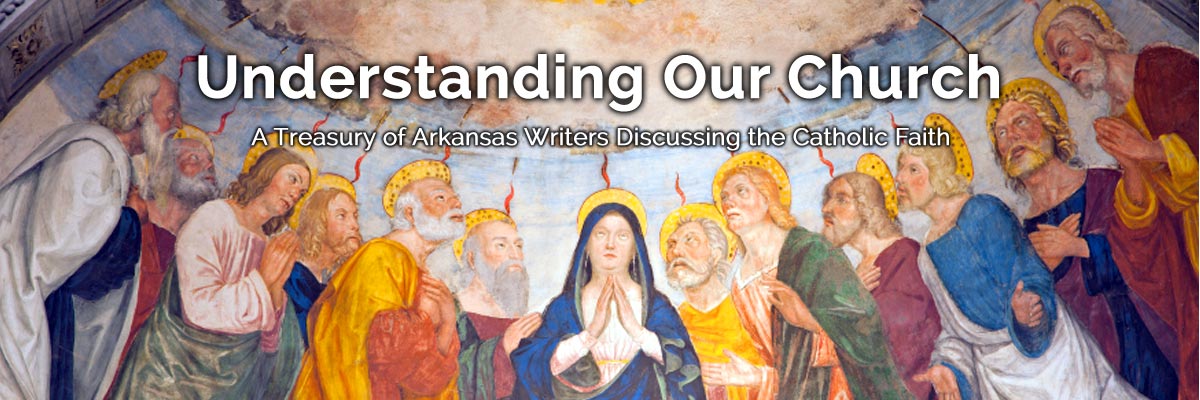Official Website of the
Catholic Diocese of Little Rock
Faith formation not just for youth; it is part of lifelong journey
Published: April 16, 2016
By Judy Hoelzeman
St. Edward Church, Little Rock
Our neighbor of almost 20 years died in February. For most of her life, she was a member of a small Baptist church near our house. She had been unable to attend Sunday services the last several years, but about a month before she died my neighbor said to me, “I still try to keep up with my Sunday School lesson every week.”
At age 87, this frail, somewhat discouraged woman still felt strongly committed to learning more about her faith and the Bible.
The Catholic Church has always emphasized and supported educating children in the faith. But the Second Vatican Council led to new research on adult education and to many effective adult study materials. In the United States, much of this material emerged after 1979, when the U.S. Catholic bishops published “Sharing the Light of Faith” (The National Catechetical Directory).
In “Our Hearts Were Burning Within Us,” the bishops wrote, “Disciples young and old are called by name to go into the vineyard. In responding to this call, adults have the greatest responsibilities and the capacity to live the Christian message in its fully developed form. Their formation in faith is essential for the Church to carry out its mandate to proclaim the Good News of Jesus to the world.” “The Church” means us.
In their later 1999 document, “Our Hearts Were Burning Within Us,” the bishops wrote, “Disciples young and old are called by name to go into the vineyard. In responding to this call, adults have the greatest responsibilities and the capacity to live the Christian message in its fully developed form. Their formation in faith is essential for the Church to carry out its mandate to proclaim the Good News of Jesus to the world.” “The Church” means us.
Our society’s hot topics these days include abortion, affordable health care, capital punishment, educational opportunities, the growing gap between the rich and the poor, immigration and sexual orientation. Because all these societal issues affect the dignity of the human person, all are religious issues as well.
For this reason, an adult faith means we keep informed about what the Church says about them. The bishops use the term “faith formation” which implies reading and study, but puts greater emphasis on constantly forming and deepening an adult relationship with God. It means we internalize our beliefs so that they guide our decisions, commitments and actions. A mature adult faith transforms us daily.
Here are three tools just to get you started. One is your parish RCIA (Rite of Christian Initiation for Adults) program. RCIA provides formation for adults wishing to join the Catholic Church, and for any Catholic seeking a renewed understanding of the Church. Look into attending these sessions, which begin each fall and continue through Easter.
The second resource started right here in Little Rock in 1974, thanks to determined and hard-working lay people and clergy. Little Rock Scripture Study takes advantage of the highest quality Catholic biblical scholarship to help adults learn the Bible and grow closer to God. Call them at (501) 664-0340 or go to littlerockscripture.org.
Finally, an excellent, comprehensive resource is the U.S. Conference of Catholic bishops’ website, where one click on the home page brings up the daily Scripture readings for Mass. The amount of information, spiritual reflection and training materials on this website (and on sites linked to it) is staggering.
I could include a long list, but adults learn better when they are left to their own choices. So, set aside some time to explore the bishops’ website for yourself at usccb.org.
Even though we may not have the luxury of well-developed adult Sunday school programs like my dear Protestant neighbor did, we do share the same baptismal responsibility to build the Kingdom of God. So, let’s use the resources we have at our fingertips and accept that responsibility. Younger Catholics and the world need us more than ever.




